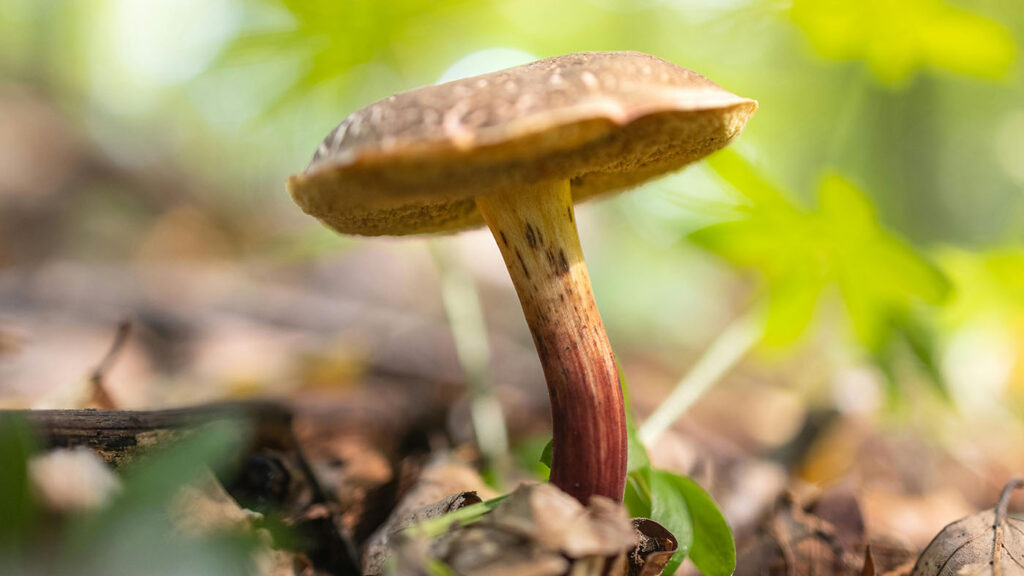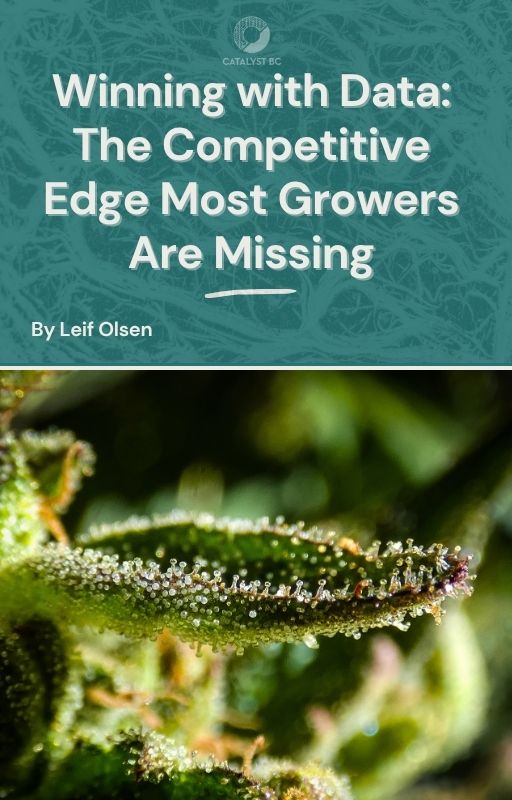Estimated reading time: 1 minute
Table of contents
- Introduction
- Timelines
- Regulatory Agencies
- Laws and Regulations
- Types of Psilocybin Licenses in Colorado
- Application Requirements for Psilocybin Business Licenses
- Colorado Psilocybin Licensing Fees
- Social Equity & Preferred Applicant Status
- Tips for Winning Your Colorado Psilocybin License
- Closing Thoughts
- Colorado Psilocybin License FAQs
- Additional Resources
- Free eBooks For Cannabis Business Success
- Latest Articles
Cliff Notes: Apply for a Colorado Psilocybin License
Objective: Understand the Colorado psilocybin licensing process, including key regulations, license types, and application requirements.
Key Components:
- Colorado’s regulated psilocybin program opens new opportunities for facilitators, healing centers, cultivators, and manufacturers starting December 31, 2024.
- Licenses are regulated by the Department of Regulatory Agencies (DORA) for facilitators and the Department of Revenue (DOR) for business operators.
- Applicants must meet eligibility criteria such as Colorado residency, age 21+, and a clean criminal record.
- Five license types are available: Healing Centers, Cultivation Facilities, Manufacturers, Testing Facilities, and Facilitators.
- A complete application includes ownership and premises documentation, zoning verification, ESG initiatives, tax compliance, and license-specific materials.
- Key success factors include reading the regulations, selecting the right license, assembling a qualified team, raising capital, and securing community support.
Partnering with Catalyst BC provides the strategic guidance and operational expertise needed to successfully launch and scale your psilocybin venture in Colorado’s regulated natural medicine market. From license acquisition to facility design and compliance, Catalyst BC implements tailored solutions that align with your business goals and regulatory requirements. Contact us for a Complimentary Consultation.

Introduction
With Colorado’s regulated psilocybin program now in effect, exciting opportunities await entrepreneurs, facilitators, and businesses in the state’s natural medicine market. Whether your goal is to open a healing center, cultivate psilocybin, or become a licensed facilitator, our comprehensive guide to obtaining a Colorado Psilocybin License is here to help you every step of the way. Many applicants find that partnering with a dedicated Psilocybin Consulting team can streamline the process and ensure all regulatory requirements are met.
This guide offers an in-depth look at Colorado’s psilocybin regulations, essential timelines, application requirements, and the complete licensing process. If you’re ready to explore the promising opportunities available in Colorado’s psilocybin market, this post provides all the essential information you need to get started confidently..
Timelines
As of December 31, 2024, you can begin applying for Colorado psilocybin business licenses. Staying on schedule is crucial, and many successful applicants have benefited from guidance provided by Psilocybin Consulting professionals.
Regulatory Agencies
The licensing and regulation of Colorado’s psilocybin market fall under two main agencies:
- Department of Regulatory Agencies (DORA):
- Responsible for regulating and licensing facilitators of natural medicine services. Facilitators are trained professionals who guide individuals through psilocybin experiences.
- More information about facilitator licensing can be found on the DORA Natural Medicine page.
- Department of Revenue (DOR):
- Regulates and licenses psilocybin businesses, including healing centers, cultivations, manufacturers, and testing facilities. They also oversee business owners and employees in this sector.
- For more information about business licensing, visit the DOR Natural Medicine page.
Laws and Regulations
Several key pieces of legislation regulate Colorado’s psilocybin program:
- Natural Medicine Health Act (NMHA): Passed in 2022, this act laid the foundation for Colorado’s psilocybin legalization and regulation, allowing the use of psilocybin for therapeutic purposes.
- SB23-290 – Natural Medicine Regulation and Legalization: This bill introduced the regulatory framework for psilocybin businesses and facilitators.
- SB24-198 – Regulated Natural Medicine Implementation: A follow-up bill aimed at streamlining the implementation of the natural medicine program.
- Final DOR Rules: The Department of Revenue adopted comprehensive rules for psilocybin businesses.
For detailed interpretation of these regulations, many applicants seek support from a Psilocybin Consulting firm.
Types of Psilocybin Licenses in Colorado
The department will issue five types of Colorado natural medicine licenses:
- Healing Centers: Provide therapeutic psilocybin experiences with licensed facilitators.
- Cultivation Facilities: Grow psilocybin mushrooms and other natural medicines.
- Manufacturers: Create psilocybin-based products, including edibles, tinctures, and extracts.
- Testing Facilities: Ensure the safety and potency of psilocybin products through rigorous testing.
- Facilitator Licenses: For individuals who guide psilocybin therapy sessions.
Application Requirements for Psilocybin Business Licenses
Eligibility
To apply for a psilocybin business or facilitator license in Colorado, you must meet several eligibility criteria:
- Residency: Priority will be given to Colorado residents for the first wave of applications.
- Age: Applicants must be 21 years or older.
- No Felony Convictions: Applicants must pass a criminal background check, which includes a review for drug-related offenses.
Process
The Colorado psilocybin license application process is as follows:
- Verify eligibility by reviewing the detailed requirements on the DOR or DORA websites.
- Submit an online application during the open application period, which is expected to begin no later than December 31, 2024.
- Pay the required fees and submit all necessary documentation (see below).
Working with a Psilocybin Consultant can help ensure that your application is complete and compliant.
Required Documents
The initial application for a Colorado psilocybin business license requires that the applicant provide plans that fully address the following:
- Ownership Information
- Names and residency details of all owners involved in the business.
- For entities (non-individual applicants), a certificate of good standing from the formation jurisdiction, registered agent information in Colorado, and organizational documents (e.g., articles of incorporation, by-laws, partnership agreements).
- List of all individuals and entities with a financial interest in the business, confirming that no owner holds more than five Natural Medicine Business Licenses.
- Premises Information
- Proof of property control through a deed, lease, or rental agreement.
- Documentation showing the location complies with local zoning laws and is approved for psilocybin-related activities.
- A site map or diagram showing that the facility is at least 1,000 feet from schools and childcare centers, as required.
- Secure facility plans, including security and surveillance as per regulations, with a detailed security plan provided before operations.
- Environmental, Social, and Governance (ESG) Criteria
- A plan addressing either Environmental Impact, Social Impact, or Governance initiatives. Applicants should include at least one of the following in their ESG plan for Colorado psilocybin applications:
- Environmental: Sustainable practices, renewable energy use, or community environmental efforts.
- Social: Inclusive hiring, community service, or Indigenous benefit-sharing programs.
- Governance: Transparent decision-making, diverse board composition, or incorporation as a benefit corporation.
- A plan addressing either Environmental Impact, Social Impact, or Governance initiatives. Applicants should include at least one of the following in their ESG plan for Colorado psilocybin applications:
- Tax Compliance
- Applicants must ensure all tax returns are filed and tax payments are up-to-date. The Division may request documentation to verify compliance.
- License-Specific Documentation
- Submit License specific documentation depending on the type of license you are applying for.
In addition, the applicant must establish entitlement to possession of the proposed premises by lease, rental agreement, or other arrangement or by ownership of the premises.
Colorado Psilocybin Licensing Fees
You must pay two fees for a natural medicine business license:
- Initial application fee (due at the time of application)
- Compliance Fee (due before license issuance)
The Colorado psilocybin license initial application and compliance fees vary by license type:
| License Type | Application Fee (Due at time of Application) | Compliance Fee (Due before License issuance) |
|---|---|---|
| Owner License | $250.00 | $500.00 |
| Natural Medicine Handler License | $100.00 | $250.00 |
| Facilitator-Owner | $0.00 | $500.00 |
| Facilitator-Handler | $0.00 | $250.00 |
| Micro Healing Center | $1,000.00 | $2,000.00 |
| Standard Healing Center | $1,000.00 | $5,000.00 |
| Natural Medicine Cultivation Facility Micro-Cultivation | $1,000.00 | $2,000.00 |
| Natural Medicine Cultivation Facility Standard Cultivation | $1,000.00 | $4,000.00 |
| Natural Medicine Products Manufacturer | $1,000.00 | $3,000.00 |
| Natural Medicine Products Manufacturer Extraction Endorsement | $1,000.00 | $2,500.00 |
| Natural Medicine Testing Facility | $1,000.00 | $3,000.00 |
Social Equity & Preferred Applicant Status
Colorado’s natural medicine program is committed to ensuring equitable access to licensing opportunities. While social equity provisions for the psilocybin program are still under review, applicants from historically disadvantaged communities may be given priority in future licensing rounds.
Tips for Winning Your Colorado Psilocybin License
Step 1: Read the Laws and Regulations
Start by thoroughly reviewing Colorado’s laws and regulations governing psilocybin and natural plant medicines. Understanding the legal framework will clarify which types of licenses you need and help you plan your proposed psilocybin activities effectively. Consulting with a Psilocybin Consulting expert can offer additional clarity.
Step 2: Choose the Right License Type
Examine the different psilocybin license options available in Colorado—ranging from facilitator and healing center licenses to vertically integrated licenses that let you cultivate, produce, and administer sessions.
Step 3: Engage an Expert
Partner with experienced professionals to guide your project from pre-licensure to full operational status. Our team can assist with facility design, operational support, and employee training. Many applicants have found that working with our Psilocybin Consultants significantly improves their application process.
Step 4: Form a Business Entity
Establish a business entity such as an LLC or S-corp to set a strong foundation for your operations. If you’re uncertain about which structure best suits your plans, seek advice from a consultant or attorney. Psilocybin Consulting services can also provide insights into optimal business structuring.
Step 5: Build a Qualified Team
DORA will review the background and qualifications of your team members closely. Utilize talent acquisition services to assemble the ideal team, ensuring you meet the compliance and safety standards required for approval.
Step 6: Develop a Solid Business Plan
A well-crafted business plan is crucial for raising capital and demonstrating the sustainability of your psilocybin business. Account for both pre-licensure expenses (real estate, facility design, marketing, legal fees, etc.) and post-licensure costs (construction, equipment, payroll, etc.). A robust plan not only impresses regulators but also helps secure the necessary funding. Many businesses leverage Psilocybin Consulting expertise to refine their financial models.
Step 7: Raise Capital
Be prepared for higher initial costs compared to typical cannabis operations due to the therapeutic nature of psychedelic services. Plan for expenses associated with session preparation, administration, and post-session care, including proper supervision and safe transportation of participants.
Step 8: Choose a Location
While Colorado mandates the presence of psilocybin businesses, municipalities control operating hours. Secure a location by obtaining consent from property owners and letters of support from local governing bodies. Consider partnering with existing healthcare centers that already provide psilocybin services.
Step 9: Garner Local Support
Obtain letters of support from local governments and build relationships with other businesses and community organizations. Demonstrating a positive impact on the community will strengthen your application and showcase your commitment to being a good neighbor.
Step 10: Write and Submit Your License Application
Finally, prepare and submit your Colorado psilocybin license application.
By leveraging the expertise of Psilocybin Consulting professionals, you can confidently navigate the Colorado psilocybin licensing process. Our expert services help ensure your application meets all regulatory requirements and sets a strong foundation for your business in the emerging natural medicine market.
Closing Thoughts
By thoroughly understanding the application process for a Natural Medicine License in Colorado, you can navigate the state’s dynamic natural medicine industry with ease and confidence. Armed with clear guidance and insights, you’ll be better positioned to seize emerging opportunities, streamline compliance, and build a thriving practice in this rapidly evolving market. Embrace the journey, and let your informed decisions pave the way for success in Colorado’s innovative natural medicine landscape.
Partnering with Catalyst BC provides the strategic guidance and operational expertise needed to successfully launch and scale your psilocybin venture in Colorado’s regulated natural medicine market. From license acquisition to facility design and compliance, Catalyst BC implements tailored solutions that align with your business goals and regulatory requirements. Contact us for a Complimentary Consultation.
Colorado Psilocybin License FAQs
To qualify for licensure as a Facilitator, Clinical Facilitator, or a Training License, an applicant must complete a facilitator training program that has been certified by the Colorado Department of Regulatory Agencies, DIvision of Professions and Occupations.
Approved Facilitator Training Programs must offer coursework of at least 150 hours on the following topics:
Facilitator Best Practices (5 hours)
Ethics and Colorado Natural Medicine Rules and Regulations (25 hours)
Relation Boundaries and Introduction to Physical Touch (10 hours)
Physical and Mental Health and State (25 hours)
Drug Effects, Contraindications, and Interactions (5 hours)
Introduction to Trauma Informed Care (10 hours)
Introduction to Suicide Risk (5 hours)
Indigenous, Social, and Cultural Considerations (10 hours)
Screening (5 hours)
Preparation (10 hours)
Administration (10 hours)
Integration (10 hours)
Group Facilitation (10 hours)
Facilitator Development and Self-Care (10 hours)
These hours and topics are minimum requirements. A program may offer additional modules or hours of instruction.
A current valid license in Colorado to practice in one of the following professions:
Psychologist (PSY)
Licensed Social Worker (LSW)
Licensed Clinical Social Worker (LCSW)
Marriage and Family Therapist (MFT)
Licensed Professional Counselor (LPC)
Licensed Addiction Counselor (LAC)
Medical Doctor (MD)
Doctor of Osteopathic Medicine (DO)
Advanced practice nurse (APN)
Nurse Practitioner (NP)
Physician Assist
Additional Requirements:
Provide proof applicant is over the age of 21.
Provide proof of Basic Life Support
Complete the application
Pay the fee
Provide proof of Colorado residency if applicable
Completion of Approved Facilitation Training Program
Completion of Practicum
Completion of Consultation
Yes, you must hold a current valid Colorado Secondary license.
The applicant holds an active and valid license in Colorado to practice any of the following:
Physician Assistant (PA)
(PSY) Psychologist
(LSW) Licensed Social Worker
(LCSW) Licensed Clinical Social Worker
(MFT) Marriage and Family Therapist
(LPC) Licensed Professional Counselor
(LAC) Licensed Addiction Counselor
Medical Doctor (MD)
Doctor of Osteopathic Medicine (DO)
Advanced practice nurse (APN)
Nurse Practitioner (NP)
For detailed guidance on secondary licensing, many applicants seek advice from Psilocybin Consulting services.
Applicants need a valid CO license in their secondary field and a valid Oregon facilitator license from Oregon that they have held and is in good standing for 1 year.
You can find it on the Natural Medicine Program’s Website, through the “Laws, Rules, and Policies” tab, and in the “Policies” Folder. A direct link can be found here: Natural Medicine Policies. The Colorado Facilitator Code of Ethics is entitled 40-01 “NATURAL MEDICINE FACILITATOR ETHICAL CODE”
A Psilocybin Consultant can provide additional context and interpretation of these guidelines to ensure full compliance.
Contact our team for specialized consultation on healing center facilities, local zoning, and navigating the unique complexities for laboratory, cultivation centers, and operations. Many clients have benefited from Psilocybin Consulting services to optimize their facility design.
Application materials must include:
• Course outlines for every training hour along with an explanation of how that course meets one of the course requirements described in this Natural Medicine rules
• Proposed program requirements for students to complete their practicum requirements
• If the education program intends to offer consultation for newly-licensed facilitators, the application must also address the training program’s plan to satisfy consultation requirements
• The time period within which students must complete the proposed training program
Additional Resources
Free eBooks For Cannabis Business Success
Latest Articles
- Missouri Cannabis Licensing & Business Opportunities 2026Missouri has established itself as the premier success story for cannabis in the Midwest, evolving from a standard medical regime to a high-volume adult-use market that exceeded $1.52 billion in annual sales in 2025. As the market enters the 2026–2027 biennium, the landscape is shifting from rapid expansion toward operational maturation and specialized entry.
- North Carolina Cannabis Licensing & Business Opportunities 2026North Carolina remains one of the final significant jurisdictions in the United States without a comprehensive medical or adult-use cannabis program. However, the 2026–2027 biennium is projected to be the most consequential period in the state’s cannabis history. Driven by the formation of the North Carolina Advisory Council on Cannabis and an impending federal “hemp cliff,” the state is moving from a period of passive prohibition toward a structured, albeit highly restrictive, regulatory framework.
- Nebraska Cannabis Licensing & Business Opportunities 2026Nebraska is entering the 2026–2027 biennium at a historic crossroads. Following the 71% voter approval of Initiatives 437 and 438 in late 2024—the largest margin for a medical cannabis initiative in U.S. history—the state is currently standing up its first regulated medical infrastructure.
- Florida Cannabis Licensing & Business Opportunities 2026Florida represents the most capital-intensive and professionally structured cannabis market in the nation. As of 2026, the state is at a crossroads: it is both expanding its mature medical program and preparing for a potential constitutional shift toward universal adult-use access. On November 3, 2026, Florida voters will decide on the Marijuana Legalization Initiative (Amendment 3). Passing this requires a 60% supermajority—a high threshold, but one that polls suggest is within reach.
- Virginia Cannabis Licensing & Business Opportunities 2026As Virginia transitions from its current “possession-only” model toward a fully regulated retail market, the 2026–2027 biennium represents a once-in-a-generation window for market entry. Unlike the vertically integrated “medical-only” regimes of the past, Virginia’s upcoming framework focuses on decentralization, specifically architected to favor small Virginia-based operators over large multi-state corporations.
- Minnesota Cannabis Licensing & Business Opportunities 2026Minnesota is currently undergoing a transformative shift in its cannabis landscape, moving from a semi-regulated hemp-derived market toward a fully comprehensive adult-use framework. Overseen by the Office of Cannabis Management (OCM), the 2026–2027 biennium represents the critical “enforcement phase” where temporary registrations sunset and permanent, merit-based licenses define the market’s long-term leaders.











